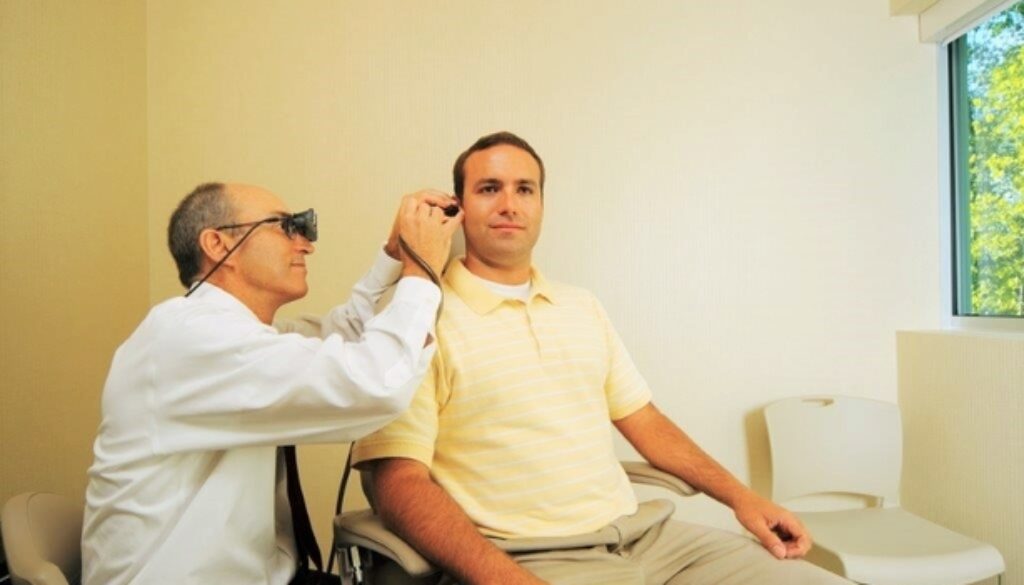The 3 Best Hearing Aid Advancements: What They Mean for You
In this article:
Forget ChatGPT. Artificial intelligence can do much more than compose messages and create stellar illustrations. Now, AI is forging new ground in some of the latest hearing aid advancements.
If you or someone you love is hard of hearing, you understand that the quality of life is directly linked to the quality of your hearing. The inability to communicate freely or even enjoy the sounds of nature due to hearing loss can leave you frustrated and depressed. Hearing aids can open a new world for many patients! Here at Raleigh Capitol ENT, our audiologists strive to keep our patients’ active participants in their families and inner circles with the use of technology including hearing aids.
Do you need a hearing aid? If so, what do these advancements mean to you? We’ll take a closer look at the three best hearing aid advancements and how they can transform your world.
(By the way, if you’re not sure whether or not you need a hearing aid, check out our previous article, “Three Ways to Know If You Need a Hearing Test” for the answer.)
The Three Best Hearing Aid Advancements
1. Artificial Intelligence: The Latest Tech for Your Hearing Aid
With AI, hearing aids are slowly transforming into devices that do much more than enhance your hearing. Can you imagine a hearing aid that also monitors your overall health? And one that alerts your loved ones if you fall?
No need to imagine. It’s reality.
Typically, hearing aids amplify sound, and digital versions are a giant leap forward from the analog versions of the past (more on that later). But even at best, this system still presented some challenges.
AI hearing aids can be trained from a vast library of data, so the aid “knows” the scenario and can adjust accordingly. As a result, more sound is delivered to the brain. According to an article in Forbes magazine, these hearing aids can also connect to cloud computing resources.
If you’ve ever struggled to understand someone in a crowded restaurant, you know how difficult it is to hear when surrounded by extensive background noise. However, a study conducted by Ohio State University revealed that AI-powered hearing aids improved the ability to hear by 55% despite the challenges presented by background noise.
2. Digital Hearing Aids – Adjusting for Your Environment
Digital technology revolutionized hearing aid design. They’re now smaller and easier to adjust–and rechargeable! (This means you no longer have to fumble with those small batteries or buttons.)
Digital hearing aids also feature noise reduction. Do you only hear half of the conversation when you’re dining out with friends? Rattling dishes and background chatter can create a communication problem. Modern hearing aids feature digital noise reduction that is made possible thanks to directional microphones. These microphones are able to focus on the conversation in front of you more.
Digital hearing aids convert sound waves into digital signals to duplicate the sound precisely. This means they have less background noise and whistling. Even better, they can be programmed to fit the needs of everyone’s hearing loss patterns. This is different from most amplifiers or over-the-counter hearing aids.
3. Bluetooth and Wireless Capabilities
Bluetooth and wireless capabilities mean that your hearing aid pairs easily with most electronic devices. You can easily access your favorite playlist, whether you’re working out to the beat or channeling some relaxing music for evening yoga.
You also don’t have to worry about any awkward discomfort when using your phone. Bluetooth connections mean that your hearing aid connects to it directly, providing a clear, direct sound stimulus to talk with your loved ones on the phone or listen to your audiobook.
Do you need to have your hearing checked?
If you think you may have a hearing loss, it’s important to schedule an appointment with one of our licensed audiologists in Raleigh.
If you answer “yes” to any of the following questions, you should be evaluated for a hearing loss:
- Do you have difficulty hearing in crowded areas such as restaurants?
- Are you constantly turning up the TV volume?
- Do you have difficulty hearing those who are speaking behind you?
- Do you have a history of ear problems, including wax buildup or constant earaches?
- Do you have a problem hearing higher-pitched noises?
- Are you constantly asking others to repeat themselves on the job?

Should I Go to an Audiologist or a Hearing Aid Dispenser?
While both hearing aid dispensers and audiologists can evaluate your hearing for the purpose of fitting hearing aids, audiologists must have extensive education and credentials. Audiologists can diagnose and treat many conditions including hearing loss, tinnitus, dizziness/balance disorders, and test/treat pediatric patients. This makes them a well-rounded professional to examine hearing disorders to create each patient an individualized care plan to help reach their hearing goals throughout their lifetime.
Audiologists must have an advanced degree–master’s or doctorate (Au.D.) –as well as pass state and national exams. In addition, they must have more than 1,800 hours of clinical training, in addition to all the rigorous coursework before graduation!
Many local hearing aid retailers in the Triangle area are not affiliated with a physician specializing in treating the ears, nose and throat. An ENT has the expertise to uncover any structural problems that may be causing hearing difficulties.
Our board-certified ENTs in Raleigh are the leading experts in helping diagnose and treat your hearing issues. Working side-by-side with our audiologists, they form a patient-centered health care team that will help you select the right hearing aid for you.
Raleigh Capitol ENTs Audiology Specialists Are Ready to Serve You
Forget your grandma’s hearing aid.
If hearing aids conjure images of an elderly grandmother adjusting a device that whistles every time she uses the phone, you need to realize that today’s hearing aids are completely different.
Now, more than ever, they are tailored to fit both your individualized hearing needs and active lifestyles, whether you enjoy dining out, kayaking, or indulging in a Netflix binge.
Interested in learning more? Contact us to schedule an examination of your ears and a hearing evaluation first. A hearing aid consultation is then scheduled so we can explain how to take advantage of the latest hearing aid advancements and technology to help better your quality of life!
The information in this article and the other articles on this website is for educational purposes only and is not intended as medical advice. If you have questions or concerns, please contact your healthcare provider.




